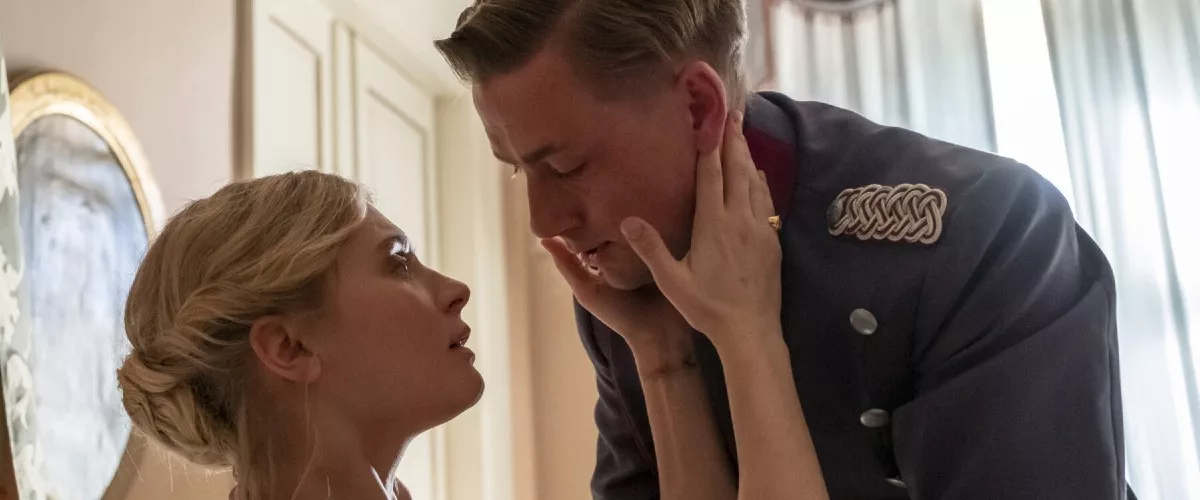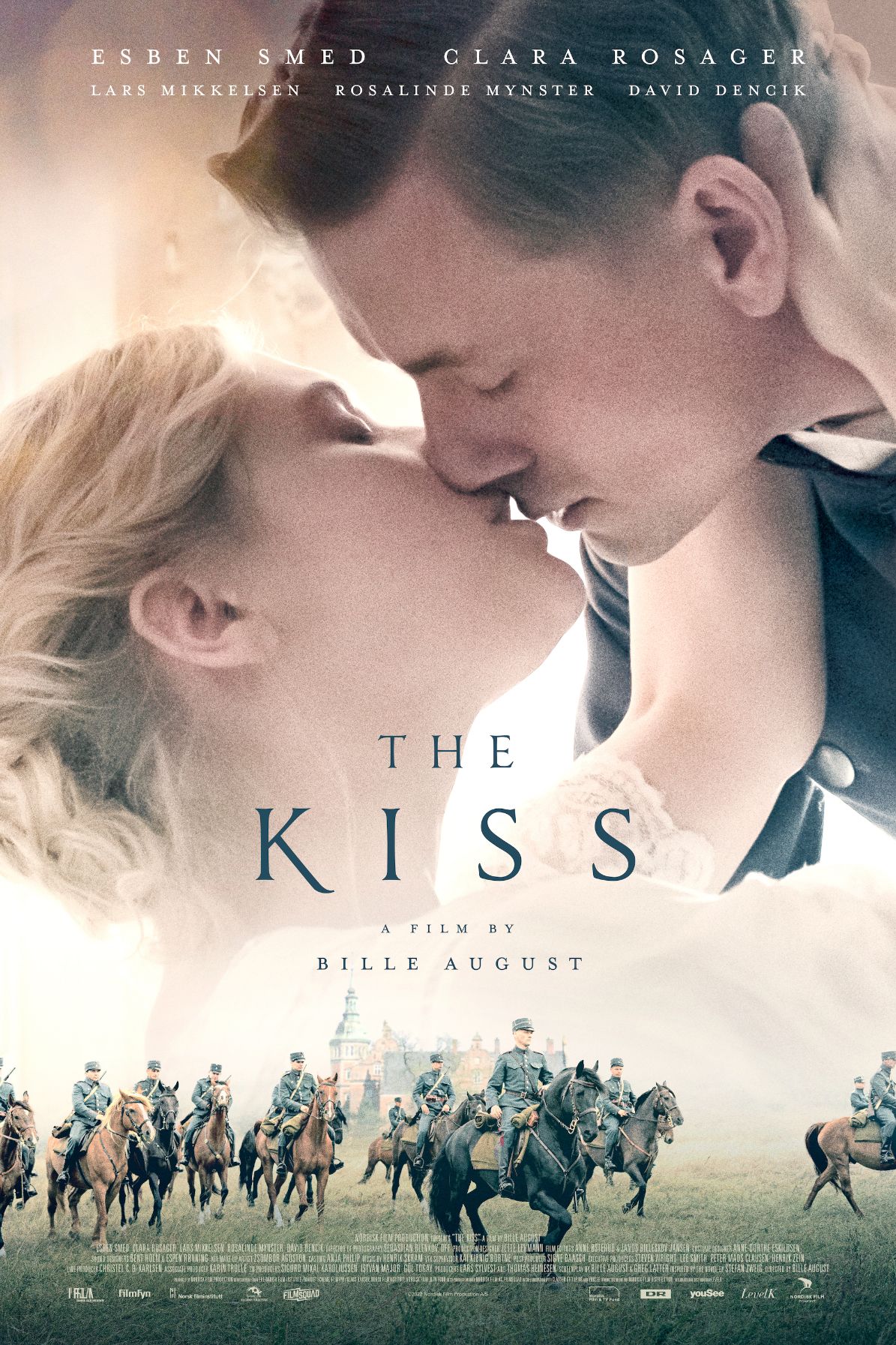In the Danish language film “The Kiss,” based on a novel by Stefan Zweig, Esben Smed plays Anton, a young Danish officer in the days just before WWI. As a soldier, Anton tries to maintain a stoic expression, as though he exists only to follow orders and bring honor to his regiment, with no room for thought or emotion. But Anton’s story depends as much on what he is thinking and feeling as on what he is saying, and Smed is up to the challenge. His face tells us what he does not say, even what he does not understand or even acknowledge.
We do know that honor is of the utmost importance to him. In the first scene, Anton and his mother are having tea with his wealthy aunt because they want her to underwrite the expenses of his becoming part of an elite battalion. He has to provide his horse, pay for a servant, and buy five uniforms. Anton and his mother have been impoverished since his father deserted them, which, his aunt points out, brought disgrace to the family. He promises that if she agrees to loan him the money, he will pay her back, and, more importantly, he will “restore our family’s honor.” Later, when Anton’s act of gallantry leads to a dinner invitation from a wealthy nobleman, the superior officer congratulates him for bringing honor to the regiment.
But it is not always clear what honor requires. Despite the title, this is not the story of a romance. Indeed, the Zweig book it is based on is more aptly called Beware of Pity. Guilt, shame, and pity are themes throughout the film, as many characters struggle to understand what they owe to those for which they feel sorry or responsible.
Anton attends the dinner at the home of Baron Løvenskjold (Lars Mikkelsen, brother of Mads). After the dinner, there is dancing, and he, understanding the duty of a dinner guest, asks the Baron’s beautiful daughter Edith (Clara Rosager) to dance. When she struggles to stand, he realizes that she is disabled, with braces on her legs. He is so embarrassed by her embarrassment that he runs away. The next day, he sends her white roses with an apology, and she responds with an invitation to tea. She finds him amusing and shares her secret stash of photos of famous dancers with him. The Baron is delighted to see Edith enjoying herself, and Anton becomes a regular visitor to their castle.
The Baron is in frail health and blames himself for Edith’s accident. He worries constantly about who will care for her when he dies. He cannot give up trying to find a cure for her, even after all of the doctors but one have given up. That one, who is, of all the characters in the story, the one who most speaks for the author, is Dr. Faber (David Dencik). He knows how much hope matters to Edith and her father, and, because medical science is always advancing, he allows them to think she is slowly getting better. But he cautions Anton not to give in to the kind of pity that is “intended to free oneself of bad feelings…[that] doesn’t reach beyond the self.” The only pity that counts, he says, is unsentimental. The doctor had a patient he could not cure and married her out of pity. And he tells Anton that the Baron also married out of pity and guilt.
Anton knows he could make the Baron and Edith happy by marrying her. But his fellow soldiers would find it mercenary and dishonorable. And he has seen that Edith can be volatile, getting frantic about whether she can ever get better and about whether she can deserve love in her diminished state. She tends toward what F. Scott Fitzgerald called “the tyranny of sickness,” hating but exploiting the sympathy of those around her. He struggles to find some way he can support her without becoming controlled by her, with tragic results.
Director and co-screenwriter Bille August brings us into the world of the early 20th century, with evocative images of the soldiers on horseback and the grandeur of the castle. But he keeps the focus on the characters, their conflicts, and their emotions. The setting is more than a century ago, but the longing for love and the struggle for intimacy are universally human.




















